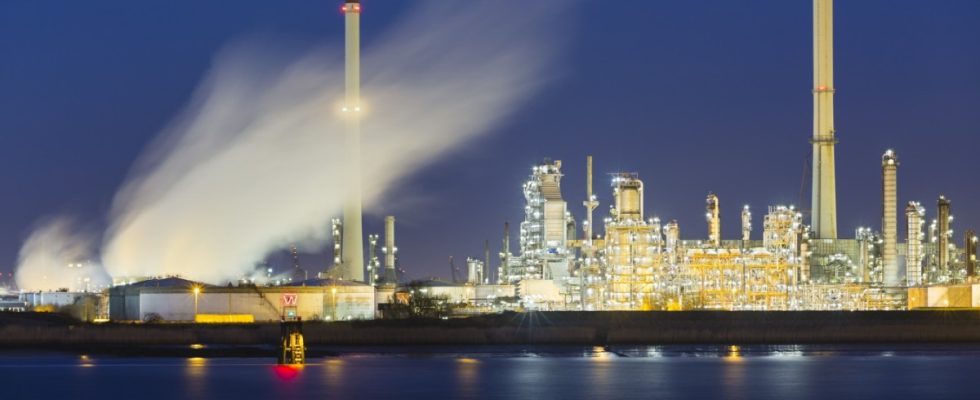The head of the world’s largest chemical company begins with a warning that could hardly be clearer. Europe’s basic materials industry is struggling with historical challenges, says BASF CEO Martin Brudermüller: “Demand is declining, investments on the continent are stagnating, production has fallen significantly, and locations are under threat.” That’s why Europe now, on the threshold of a new Brussels legislative period, needs an “industrial deal” as the core of its strategic agenda, a program to achieve climate change and at the same time maintain its industrial competitiveness.
The 62-year-old Brudermüller is also president of the European chemical association Cefic and hosted a special industry meeting on Tuesday. Dozens of representatives from energy-intensive industries gathered at the BASF plant in Antwerp, Belgium to adopt the “Antwerp Declaration”., a ten-point wish list for European politics. 73 signatures, a common goal: “We have to keep industry in Europe because it will deliver the climate solutions that Europe needs.”
In addition to Brudermüller and other chemical bosses, the signatories include the CEOs of industrial companies from all over Europe, cement and steel companies, paper manufacturers and oil companies. The Belgian EU Council Presidency supports the declaration; Belgian Prime Minister Alexander De Croo is quoted in the first paragraph. And the timing of the meeting is no coincidence: it was only on Monday that EU Commission President Ursula von der Leyen announced that she would run for a second term in office. On Tuesday she traveled to Antwerp – a clear political signal to the signatories of the initiative.
No new demands, but a lot of force
What they are demanding is not necessarily new, but with the signature of so many CEOs it has a different impact. According to her idea, the industrial deal should be the focus of the work program of the new EU Commission, preferably with its own responsibility directly below the President. This would be congruent with the Green Deal, the EU climate protection program of recent years, which a Commission Vice-President is responsible for.
If the industry has its way, the new commissioner should first implement some kind of deregulation program. An action plan for the industry must include making existing regulations less contradictory and complex and eliminating reporting requirements, the statement said. Europe must also become a “globally competitive energy supplier”: “We need a real EU energy strategy with concrete measures that enable cross-border electricity, the expansion of hydrogen networks (…) and partnerships with countries rich in raw materials.”
At the heart of the declaration is the call for a stronger green industrial policy. There should be an EU fund for clean technologies and at the same time a simplified framework for state aid. The industry demands government support over and above the investment costs. Based on the American model Inflation Reduction Act (IRA) of the government of US President Joe Biden should also be able to subsidize operational costs. This would mean, for example, not only supporting the construction of a plant for producing hydrogen, but also the production itself.
The demands are finding fertile ground in Brussels. Under changing geopolitical conditions, confronted with protesting farmers and warning company representatives, the Commission has recently significantly changed its communication. The most recently presented communiqué on the climate targets for 2040 states: For the Green Deal to be a success, it must be “complemented by a determined and renewed European agenda for sustainable industry and competitiveness.” In your State of the EU speech Ursula von der Leyen had already spoken of the “next phase” of the Green Deal in September.
Experts are initially skeptical about the industry wish list. “Green industrial policy would require real European financing,” says economist Nils Redeker, deputy director of the Berlin think tank Delors Center. “Ursula von der Leyen would have to invest a lot of political capital into this.” Because many member states are not interested in new EU funding. The big question is whether the head of the Commission will manage to put together an overall package that will further develop the Green Deal – “or whether the pendulum will now swing back.”

